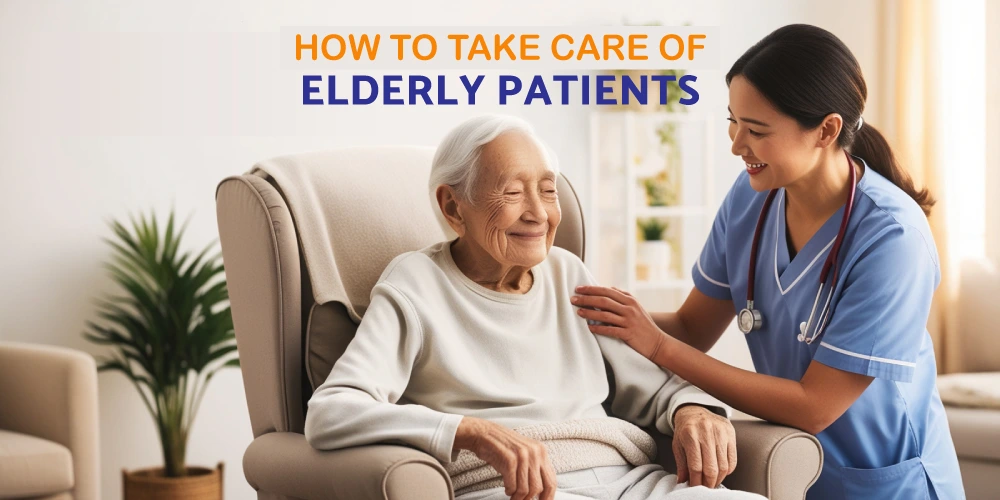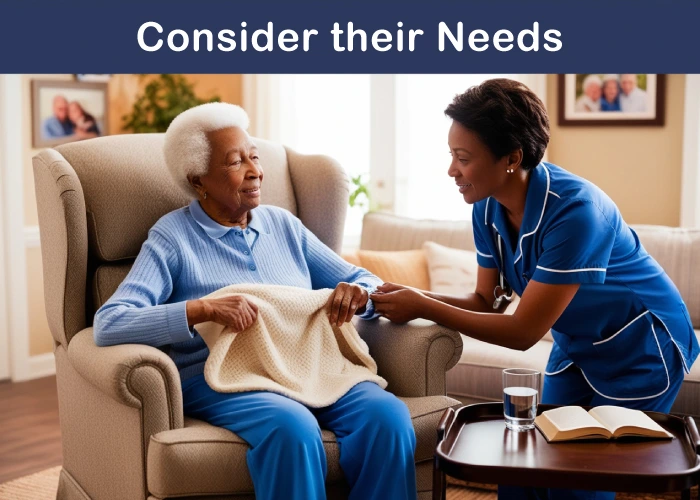Eldercare (also referred to as “care of the elderly”) is a service designed to meet the individual needs and preferences of seniors, such as assisted living facilities, senior day care programs, long-term nursing home stays, hospice services, or in-home visits.
Eldercare services provide personalised assistance that meets the unique needs and demands of seniors. While age is not an issue in senior care, many people worry about illness and the various limitations it entails. While some older adults are able to stand by themselves, others need our help. It is our responsibility to take care of our elderly, and we are free to choose how to do it. Let’s talk about how to take care of elderly patients.
Why is it vital to care for older adults?
Although we cannot stop ageing, we can learn how to manage the ailments that are getting worse for the sake of our loved ones’ health. Among the most prevalent medical conditions affecting the elderly are memory issues, dementia, and Alzheimer’s disease. Some older adults can age comfortably without requiring any form of care. However, when an aged person starts to struggle with daily life activities, both safely and independently, the care of the older adult is typically a concern. This covers tasks like cleaning, dressing, cooking, having a bath, and taking medication, among others.
Family members typically recognize when an elderly individual requires care. Yet, individual health concerns and complications play a large part in determining which form of adult care would best meet their needs. While you spend time with them engaging in basic games or activities, it is beneficial to keep an eye on them; eldercare becomes increasingly necessary with age as individuals become incapable of providing for themselves alone.
Advice for Caring for Elders
In order to provide adequate assistance to elderly individuals, the first step should be assessing which care will work best. Staying aware of their state will aid this decision-making process; their overall health and ability to carry out everyday tasks will determine precisely how much support is necessary, from minimal assistance all the way up to complete non-intervention.
As healthcare providers, we must be aware of the health and prescription status of older people. When caring for them, remember to show patience, love, and respect. Keep in mind that it may be challenging at times, but we must not forget that it can’t always be easy being dependent on us or others for caregiving them.
Caring for older people is very important today. Many older people can’t care for themselves, and depending on others might make them feel bad. So, it’s essential to build good relationships with them for their wellbeing.
Please make sure they are part of every decision about their care.
An older person might not want help or therapy if they feel others are deciding for them, which can make it harder for them to accept help and make therapy more difficult. To give individuals more autonomy and control, involve them in all chores and decision-making related to their care; communicate openly about all choices you make, as well as seek opinions before making your own; listen attentively when others share what’s on their minds.
Update their home
Homes get older just like people, but many need to be changed to meet the needs of older adults. We can make senior living better by remodelling or adapting a home. This also makes life safer for older people and lowers the chance of accidents. Some changes to the house that should be made include grab bars, non-slip rugs, smoke and gas alarms, and higher toilets.
Consider their Needs
Determine whether your elderly loved one requires home or professional caregiver assistance with eating, moving around, or performing daily chores. Communicate regularly about this subject so you can identify their requirements and meet them as efficiently as possible.
Maintain Their Activity
Encourage your elderly loved ones to maintain a trim level of physical activity in their everyday lives to help them stay healthy. Simple joint-friendly exercises that seniors can do include swimming, cycling, dancing, short walks, and light yoga. Being active is beneficial even if they are unable to move independently. Look for fun activities you and your senior can do together, including dancing, nature excursions, or gardening.
Make sure that all paperwork is complete for older people.
With age comes many challenges for our elders; assistance may be required to take care of themselves despite ailments that affect them directly. Someone must manage their papers because they cannot do this on their own. Although it’s a tricky subject to discuss, it’s necessary. Please verify that all of their required documentation is up to date and signed.
Make Use of the Support
For the care of an older adult, hiring a personal assistant or caregiver can be costly and time-consuming. But it might also benefit the maintenance and wellbeing of your senior. Always verify references, contact a reliable company, or ask a friend or acquaintance who is prepared to lend a hand.
Serve wholesome meals
Various nutritional demands, such as joint discomfort or heart issues, are catered for in various meal programs. You have a variety of options for meal plans that are appropriate for your elderly family members. For an aged person, having a good meal is essential to their diet and overall health.
Assure the health and wellbeing of caregivers.
It is wise to ensure the wellbeing of caregivers. Caregivers play a vital role in supporting elderly clients, but sometimes their mental and physical wellbeing can suffer. Regular checks on eating and sleeping schedules, as well as employment, will allow for more accessible assistance for older people.
Exercise for Senior
Exercise is vitally important to our lives; the more exercise we get, the healthier we become. This holds when caring for an older adult; keeping their bodies active through participating in various forms of physical activity helps maintain good health and prevent complications later.
Engage in active participation in their medical care.
The majority of older adults experience health problems and diseases associated with aging. Talk to their medical staff about the unique issues of your elderly relative. Look for ways to help them stay organised, such as giving them a monitor from which they can call for assistance if needed.
Regular Visits
Older adults require both emotional stability and the reassurance that they are loved, so knowing how they’re doing and their needs will put your mind at ease. Take this time to review their medication regimen, food supply, and any changes needed in their home and neighbourhood.
Cyclizing
Cycling is a low-impact exercise that can assist older people who are inactive or have joint or muscular problems in lessening their response time to the ground while they exercise. Frequent cycling lowers the risk of heart disease by strengthening and stimulating the older adult’s heart, lungs, and circulatory system. Older adults who bicycled had stronger hearts, lower body fat levels, and a slower heart rate.
Dancing
Seniors of any age who dance salsa, Zumba, or any other style regularly are engaging in an excellent form of physical activity that raises heart rate, builds additional muscle groups, enhances mood, and improves balance. Engaging with friends or a group when they exercise can bring socialization benefits, too!
Conclusion
How to take care of elderly patients- Caregivers can significantly enrich their elderly loved one’s lives by showing understanding, guaranteeing safety, and encouraging physical and mental wellness while including family members in this process. Ultimately, the aim should be to enhance their standard of living while upholding dignity and freedom.



